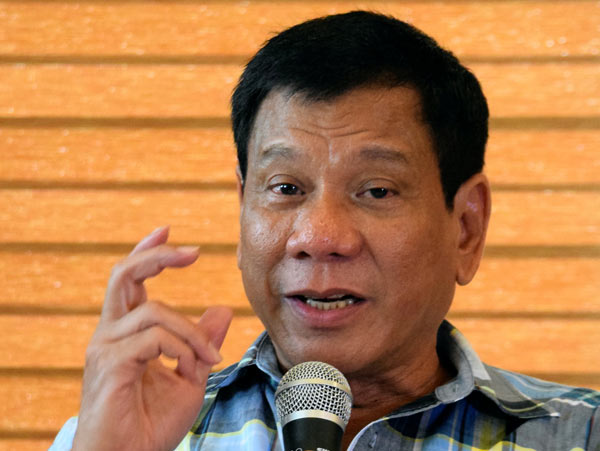 |
|
President-elect Rodrigo Duterte speaks during a news conference in his hometown Davao City in southern Philippines, May 16, 2016. [Photo/Agencies] |
In his first state of the nation address delivered on Monday, Philippine President Rodrigo Duterte said he will utilize the ruling in the country's international arbitration case to peacefully resolve the country's territorial disputes. This is widely seen as his attempt to maintain a low key approach to the maritime disputes with China.
Peaceful resolution to the South China Sea disputes has been and is China's consistent stance. When elaborating China's position on the South China Sea arbitration last week, Foreign Minister Wang Yi said China would like to work in unison with the Philippines if the new Philippine government is willing to resume dialogue and consultation, manage disputes and improve bilateral relations together with China.
On July 12, the arbitral tribunal ruled in favor of the Philippines in the case it had filed against China. The case, unilaterally brought by former Philippine president Benigno Aquino III, has plunged ties between China and the Philippines to a historic low.
Since his inauguration, Duterte has showed pragmatism and willingness to engage in bilateral negotiations with China. Soon after the arbitration ruling was announced, he said he intended to send former Philippine president Fidel Ramos to China to start negotiations on the South China Sea disputes.
This is the right approach to resolve the maritime disputes. If the Philippines sticks to this approach, China will respond positively, and thus, the tensions in the South China Sea will be dramatically eased, which, in turn, will cater to the interests of peace and stability in the region.
It still needs to be pointed out that the latest remarks from Duterte show the Philippine leader still harbors some illusions that the arbitration might be used as a bargaining chip when bilateral talks with China begin.
But even before the ruling was delivered, China made it clear the country would not negotiate with the Philippines on the basis of any ruling in the arbitration case, regardless of whether it was in favor of the Philippines or not.